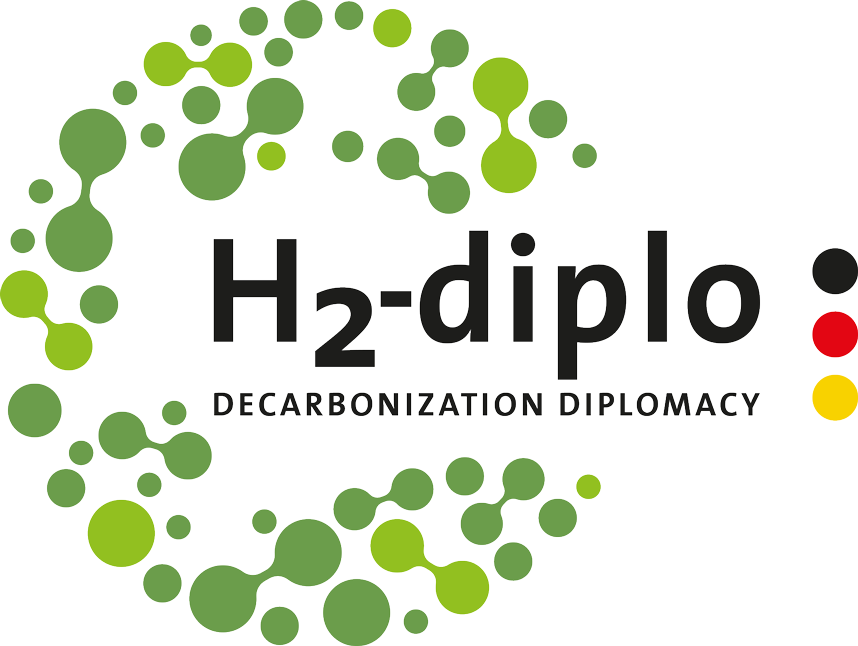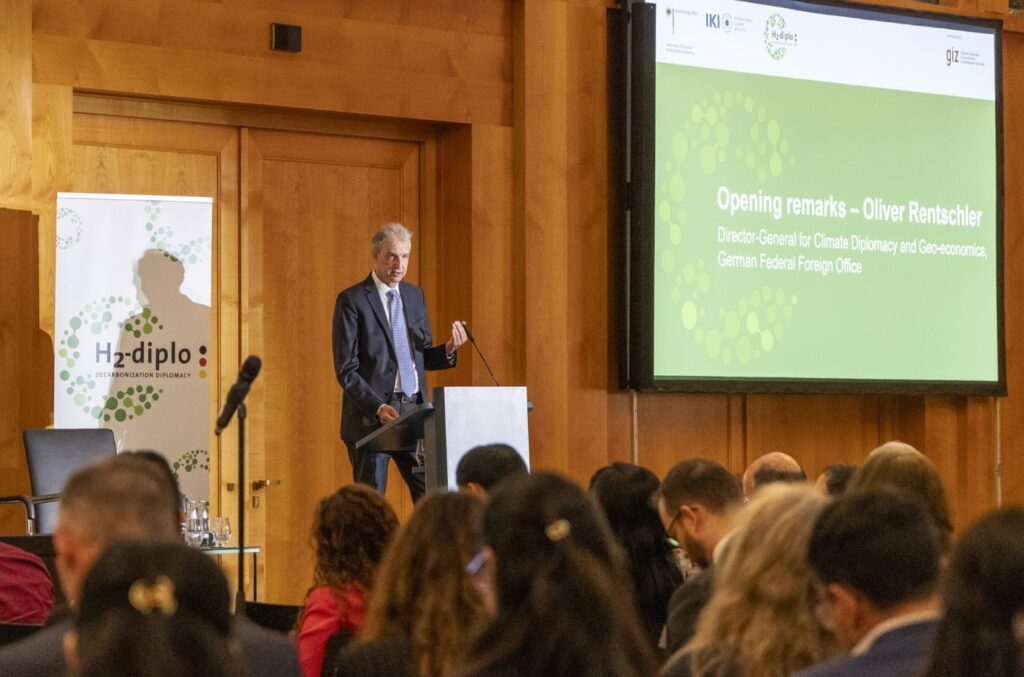On May 29, 2024, H2-diplo hosted the second conference in the “Future Forum Green Hydrogen” series at the German Federal Foreign Office in Berlin. The in-person event brought together more than 120 experts, diplomats, policymakers and stakeholders from the energy sector to discuss the geopolitical dynamics of future energy trade relations. The debates centered on securing reliable energy imports for the EU and enhancing socio-economic opportunities and climate action potential in hydrogen exporting countries in the Global South.
In his opening remarks, O. Rentschler, Director-General for Climate Diplomacy and Geo-economics at the German Federal Foreign Office, emphasized the need for reliable international partnerships and interconnected policies for successful green energy markets in the future, against the backdrop of the momentous COP28 decisions for scaling up the global energy transition. In his following keynote, D. Scholten illustrated how geopolitical considerations, such as development needs (Global South), securing of energy independence (Global North), and economic diversification (fossil exporters) will shape the pace and extent of the global energy transition in the short to medium term – while this interrelation will be reversed in the long run.
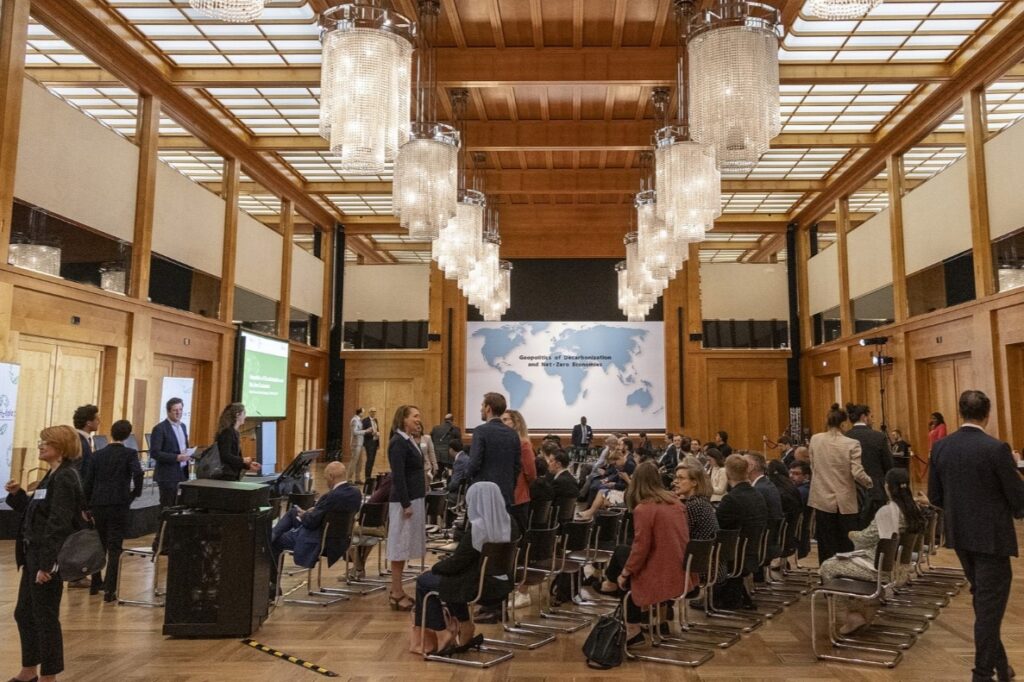
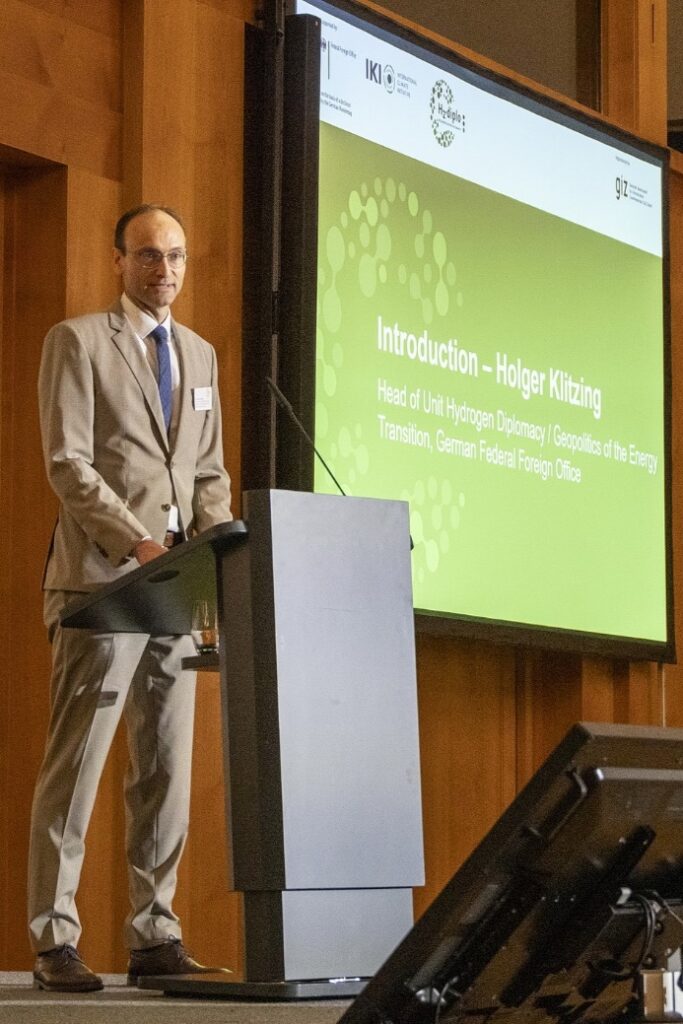
The panelists also emphasized the imperative of developing robust, equitable, and sustainable energy systems, highlighting the pivotal role of international cooperation and effective international policy frameworks in achieving this goal. The discussions were further enriched by a presentation of a recently launched IMF study on “Energy Security Gains from Strengthening Europe’s Climate Action”. The results of this analysis show the need for a comprehensive climate policy in Europe that can reduce emissions with relatively low economic costs and simultaneously enhance energy security.
A final panel discussion focused on the opportunities of a global hydrogen economy for emerging energy exporters, particularly from Africa, as well as on the perspectives of traditional fossil exporters, transitioning to renewables. Concerns were raised about the risks of an unequal global distribution of benefits and how trade instruments such as the EU CBAM might penalize the Global South, if not designed with consideration for the socio-economic demands of producer countries. Lastly, the speakers emphasized the importance of forming multi-stakeholder alliances and the crucial role of the EU in supporting the development of regional and hydrogen economies, e.g., through strategic infrastructure investments as well as through reliable communication of regulatory frameworks and standards. It was stressed that the development of robust, just, and sustainable hydrogen trade might not only lead to reliant energy supply for Europe, but will also enhance political and economic stability worldwide.
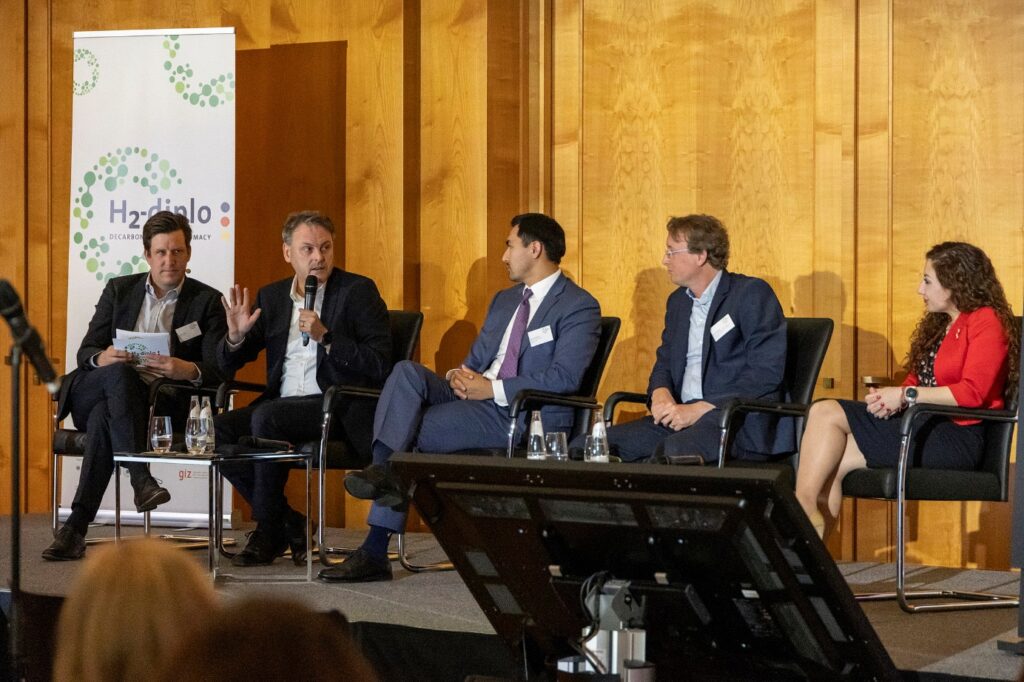
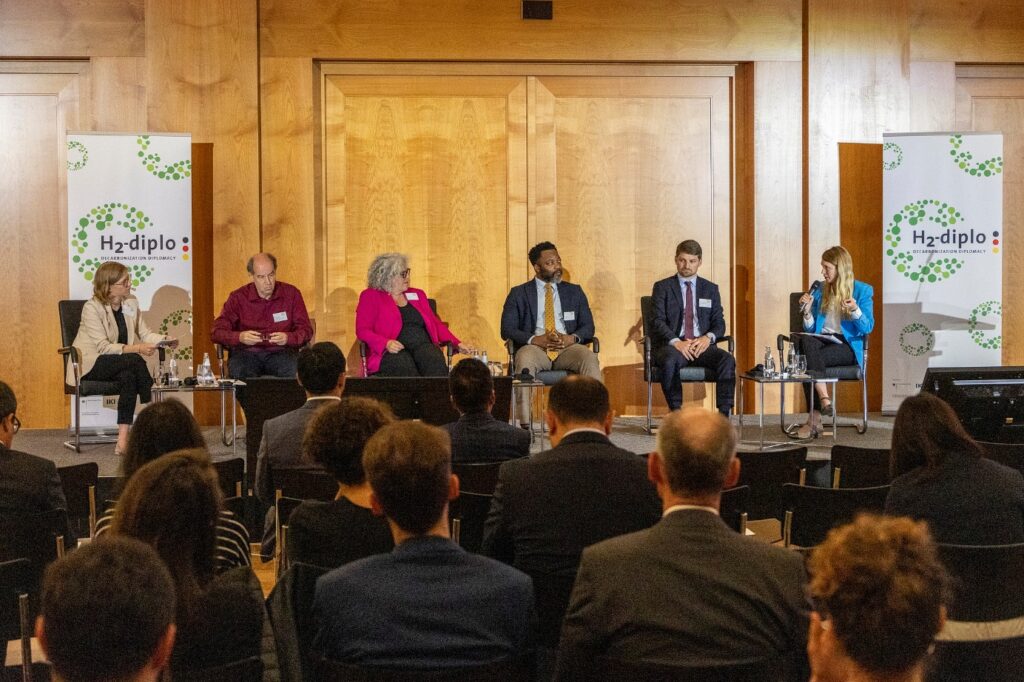
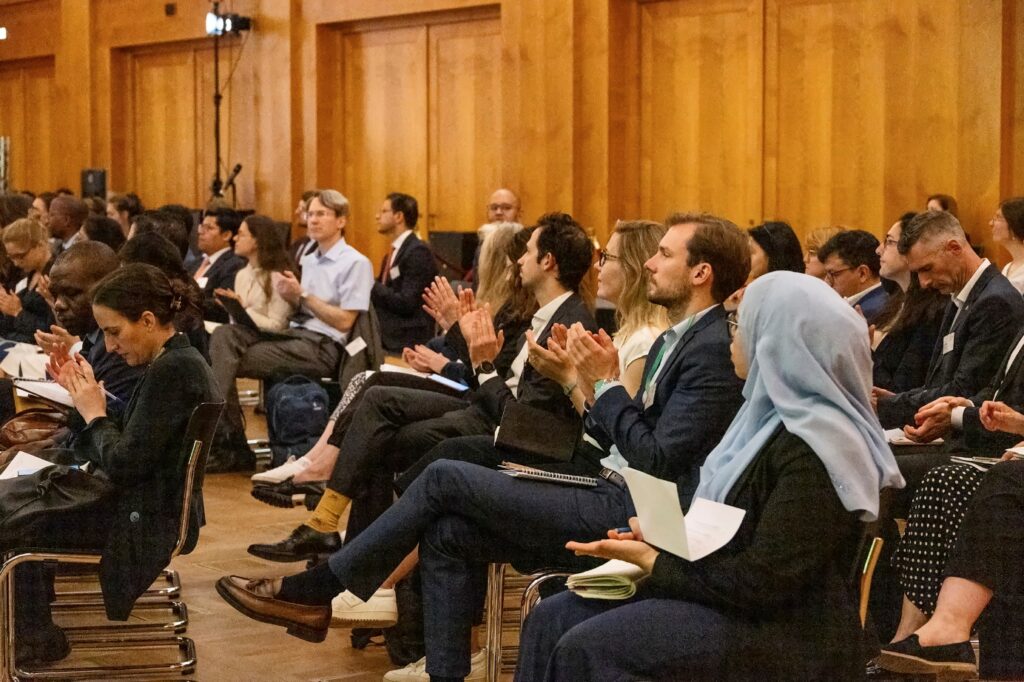
H2-diplo is looking forward to follow-up on these discussions in future editions of the Future Forum Green Hydrogen series. For more news about the H2-diplo activities and events, please see our section on News & Events and follow us on LinkedIn: H2-diplo – Decarbonization Diplomacy | LinkedIn
All pictures by Stageview by Pedro Becerra.
